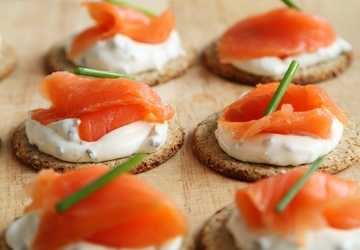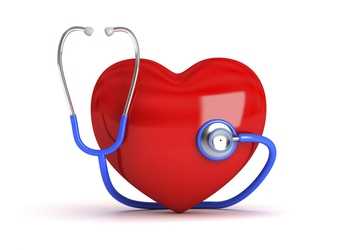The Benefits and Risks of the Keto Diet for Weight Loss
Imagine losing weight while enjoying stimulants like bacon, butter, and cheese. Sound too good to be true? Let us introduce you to the ketogenic diet. This trendy diet promises quick and dramatic weight loss by cutting carbs and adding fat.
But as with any shortcut to success, you must know the potential risks and side effects. In this fascinating blog post, we'll take you on an exciting adventure through the ups and downs of the ketogenic diet, exploring the science behind the weight loss benefits of the ketogenic diet while uncovering potential dangers.

What is the Ketogenic Diet?
This revolutionary eating model turned traditional weight loss on its head by encouraging people to enjoy butter, cheese, and salty treats. Say goodbye to sugary candies and starchy potatoes, and stock up on nuts, oils, meats, fish, eggs, and more. The special ketogenic diet promotes weight loss within weeks, making it popular with those who like to cut corners on everything.
By limiting carbohydrate intake and focusing on healthy fat sources, the ketogenic diet aims to put our bodies into a metabolic state called nutritional ketosis. This shift taps into our natural energy stores and uses ketones as fuel instead of glucose, which usually comes from carbohydrates.
5 Benefits of the Ketogenic Diet for Weight Loss
Fast slim
Who wants to spend months counting calories and toiling at the gym without seeing results? Not you! A ketogenic diet can speed up the weight loss process so you can quickly slip into your favorite skinny jeans! The ketogenic diet boosts metabolism by focusing on healthy fat sources and minimizing carbohydrates. It triggers a state of "ketosis" where your body burns fat for energy like a well-oiled machine!
Insulin whisperer
Get ready to say goodbye to the "fat-storing hormone" insulin! We can easily fall into an insulin trap with ever-rising blood sugar levels on a traditional diet that relies heavily on high-carb foods. Insulin uses excess glucose and pushes it into our cells for storage, which leads to fat accumulation. However, the ketogenic diet takes a different approach by limiting carbohydrate intake, emphasizing healthy fats, keeping insulin levels low, and making it easier for our bodies to convert stored fat into energy. No more annoying hunger pangs and energy slumps!
Fight cancer with the power of fat.
Contrary to traditional nutritional norms, the ketogenic approach prioritizes healthy fats, limits carbohydrates, and encourages our bodies to enter ketosis. Cancer cells live on glucose, which usually comes from carbohydrates. Fortunately, a ketogenic diet can break this destructive cycle by reducing the sugar supply to cancer cells, inhibiting growth. The unique properties of the ketogenic diet have also shown promise in supporting traditional cancer treatments such as chemotherapy.
Redefining diabetes care
The ketogenic diet isn't just a weight loss tool—it's a lifesaver for those battling type 2 diabetes. Gone are the days of severely restricted carbs, blood sugar spikes, and uncomfortable insulin shots. The innovative ketogenic diet offers a revolutionary new way to prioritize healthy fats and keep carbohydrates in check. When you embark on this nutritional journey, you'll unleash your body's fat-burning potential and make diabetes symptoms a thing of the past!
Ketosis and epilepsy
The ketogenic diet offers hope where it's least expected -- in alleviating epilepsy symptoms for those who have long suffered from unpredictable seizures. Recent research has shown that this unique metabolic change triggered by ketosis can reduce the frequency and severity of attacks—even in individuals who have failed other treatments.

Top 5 Risks of the Ketogenic Diet for Weight Loss
The dark side of keto
Now that you know all about the benefits of ketogenic, you must be wondering whether a ketogenic diet is good for long-term weight loss. The short answer is no. Limiting essential food groups and focusing on high amounts of saturated fat can affect your overall health and nutrition. While you may lose some weight initially, the difficulty of adhering to this strict dietary approach can have a rebound effect, where you regain the weight as quickly as you lose it.
When the limit is too large
Food isn't just fuel for our bodies—it's often a source of pleasure and comfort. But when we make significant changes to our diets, such as committing to a ketogenic lifestyle, for example, it's essential to acknowledge the impact this has on our relationship with food. While food restrictions can simplify our choices, they can also negatively impact our relationship with food. If we only view food as a means to achieve our weight loss goals, we risk missing the satisfaction, joy, and cultural traditions that make food unique. In addition, those with a history of eating disorders are especially vulnerable because strict dietary restrictions can trigger these harmful behaviors.
Finding a silver lining in the keto flu
Adapting to a ketogenic diet is like stepping into a new world—your body starts burning fat for fuel instead of relying on traditional energy sources. But like all new beginnings, the transition period can be challenging, especially with the keto flu. Be prepared to experience various symptoms that can leave you feeling drained, constipated, and different than usual. Feeling down is normal as your body adjusts to new metabolic demands and your system finds its unique balance.
The high cost of LDL cholesterol
While the ketogenic diet has many benefits for weight loss, experts warn that there are some serious pitfalls. A ketogenic diet can be a whirlwind adventure to improve your health, but as the saying goes, with great power comes great responsibility. Saturated fat in foods like processed meats, full-fat dairy, and tropical oils can increase low-density lipoprotein (LDL) cholesterol, commonly known as "bad" cholesterol.
This unhealthy buildup of cholesterol in the blood can damage the walls of our blood vessels and increase the risk of severe health complications such as heart attack and stroke.
When less is not always more
The promise of cutting out white bread, sugar, and other high-carb foods seems like an absolute panacea. But we must tread carefully and be aware of the pitfalls of a healthier lifestyle. By limiting carbohydrates, we may miss out on many health benefits of nutrient-dense fruits and vegetables, which contain essential vitamins, antioxidants, and minerals necessary to fuel our bodies. Once carbohydrates are depleted, we also risk losing the strength of the fiber that supports our digestive health.
Find the right balance!
When it comes to dieting, it's easy to fall prey to quick and easy fixes. But these practices' damage to our physical and mental health cannot be underestimated. The power lies in finding the right direction to eat, which includes different foods. Our responsibility is to prioritize our health and well-being by choosing various foods that provide us with plenty of energy and happiness!







